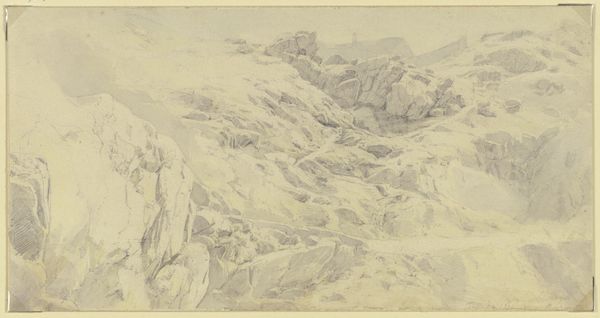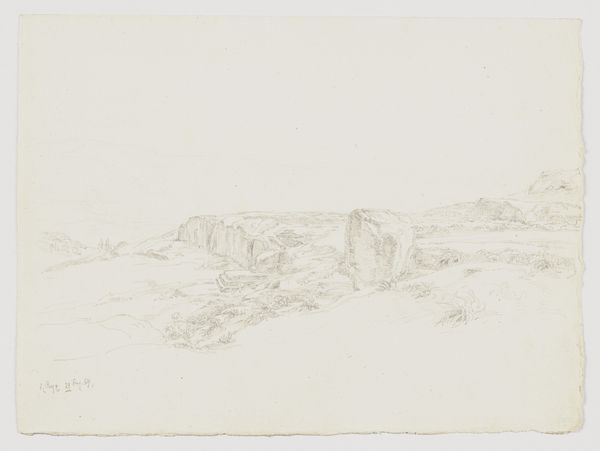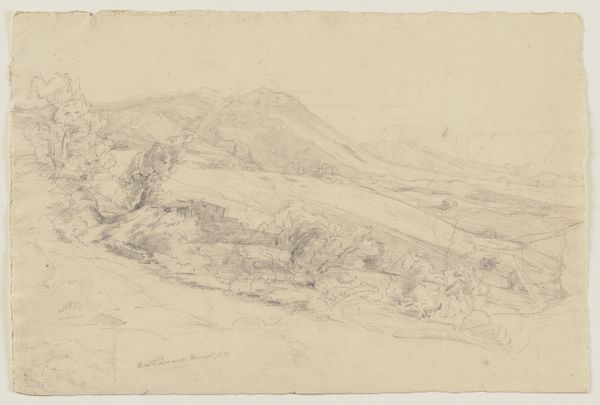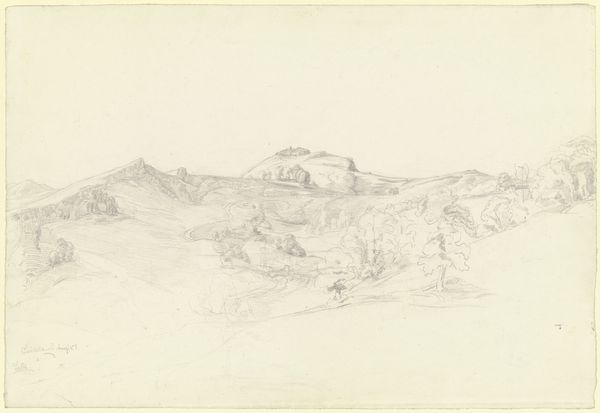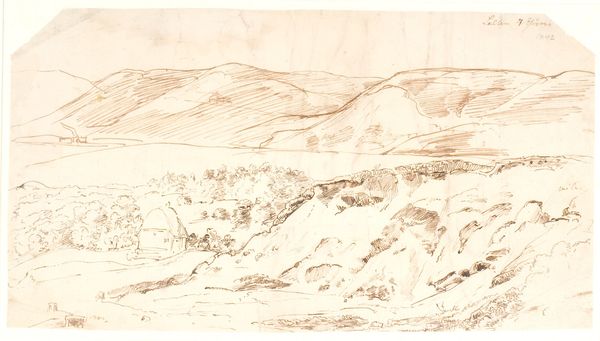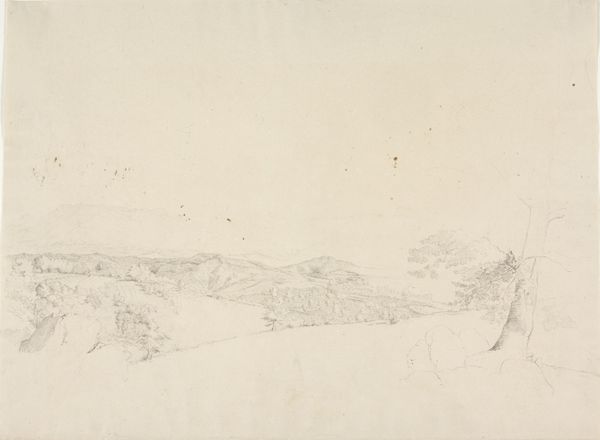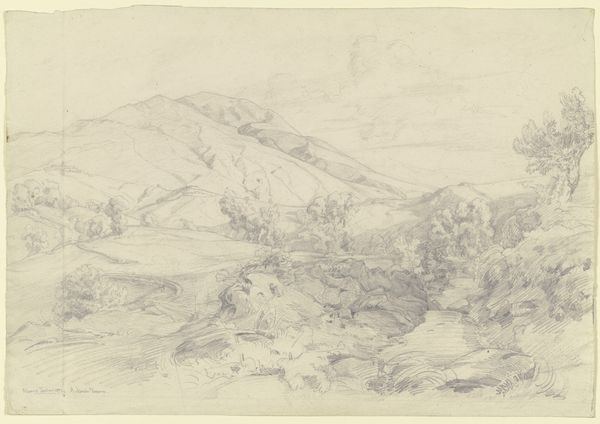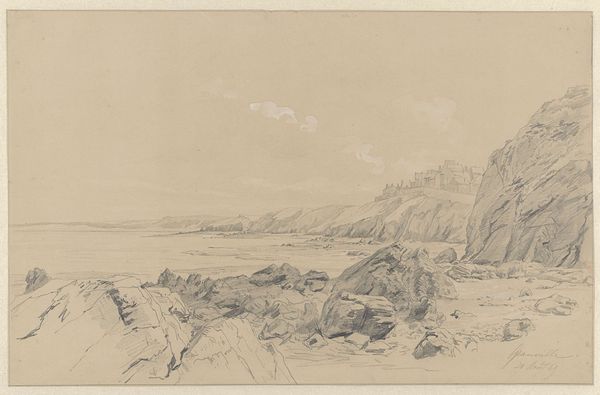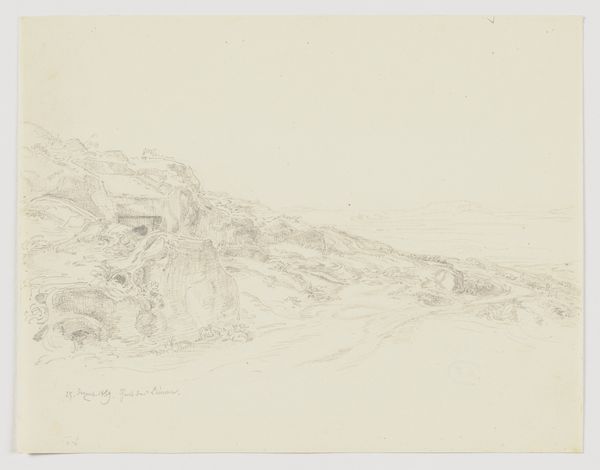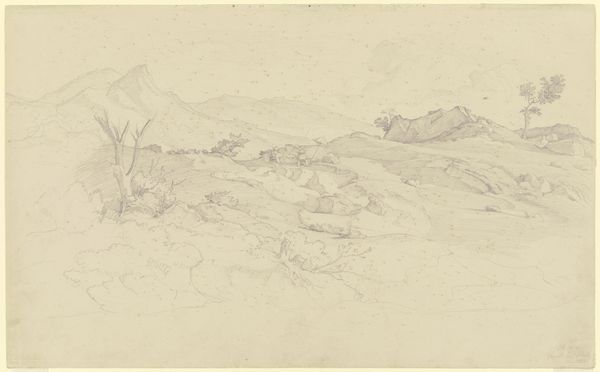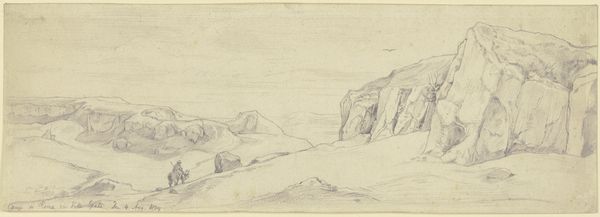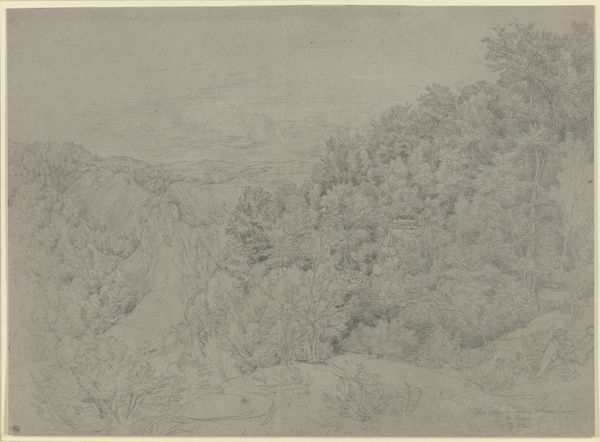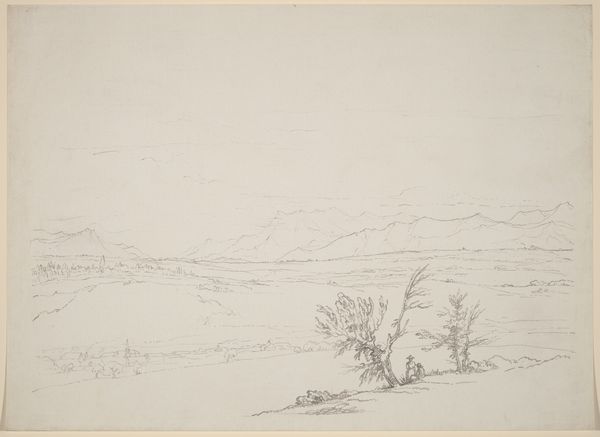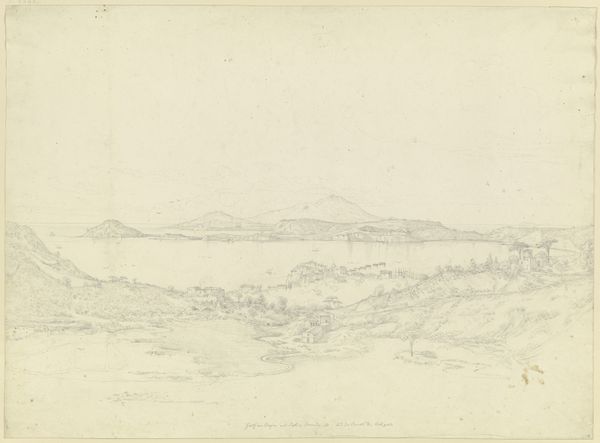
Copyright: Public Domain
Curator: Welcome. Let’s explore “View of Pozzuoli,” a pencil drawing by Ernst Fries, created in October of 1826. It's currently held at the Städel Museum. Editor: My initial impression is of a washed-out dreamscape. It feels unfinished, ethereal. The pale pencil strokes almost disappear into the paper itself, lending the scene a ghostlike quality. Curator: Fries was working within the Romantic landscape tradition. These artists sought to capture emotional experiences and subjective responses to nature. Pozzuoli, near Naples, offered picturesque subject matter, a mix of historical resonance and natural beauty that appealed to northern European artists. Editor: Absolutely, you can feel that romantic sensibility in the way the town appears distant, almost mirage-like. I see that Fries emphasizes the natural, eroded foreground, it could serve as commentary on time, ruin, or the impermanence of human structures. It feels like the drawing implies a relationship with structures in society too. Curator: Well, many artists traveled to Italy searching for an idealized past but they weren't oblivious to contemporary society and their artistic production played a role in its contemporary culture, politics, and socio-economics of art production. Consider, too, the accessibility of drawings like these. They weren't the monumental history paintings commissioned by royalty. Editor: That is important context, because for the public viewing this art at the museum today it may elicit a romantic image of Italy and the artwork may offer some accessibility. The style, almost sketch-like quality, offers the opportunity for imagination and reverie but we have to remember what public can do that. I wonder if this image helped inform or shift ideas around social class, economics or politics at the time of its production. Curator: That's certainly food for thought. It reminds me how an artwork like this isn’t static but lives within complex, overlapping historical moments, and also continues to live, with us now, in this present moment. Editor: Yes, Fries’ "View of Pozzuoli" remains evocative—offering new opportunities for interpreting landscape and its socio-historical importance to contemporary society.
Comments
No comments
Be the first to comment and join the conversation on the ultimate creative platform.
